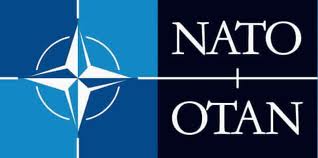Russia’s Soft Power: Does Moscow have any chance to achieve it?[Over]  by Prof. Andrej Kreutz,
by Prof. Andrej Kreutz,
EGF adviser for Trans-Atlantic security
The issue of soft power and its use in international relations, the concept of attracting and coopting rather than use of direct or indirect coercion as a means of persuasion, was introduced to present use by American scholar Joseph S Nye Jr. in 2002. However, both its concept and its practical use were in fact not new. Both modern and past history provides numerous examples of its previous applications. READ MORE
- Friday, 21 June 2013, 15:49
Building Confidence in the South Caucasus: Strengthening the EU’s and NATO’s Soft Security Initiatives[Over] 7th Workshop of the PfP Consortium Study Group “Regional Stability in the South Caucasus”
On 14-16 March 2013, George Niculescu, our Head of Research, attended the 7th Workshop of the PfP Consortium Study Group “Regional Stability in the South Caucasus”, held in Tbilisi (Georgia). Mr Niculescu briefed a distinguished audience consisting of government officials, representatives of the EU and NATO, as well as of experts from regional and international think tanks and civil society on the EGF research paper on "A Pragmatic Review of Nagorno-Karabakh Conflict Resolution: Could Economic Incentives Help Break the Current Stalemate?", published last October jointly with Dr. Marat Terterov. Mr Niculescu thus concluded that “the exit from the current stalemate in the resolution of the Nagorno-Karabakh conflict would require starting up discussion around economic issues, and that the next step to this end might aim at setting up a comprehensive dialogue among interested businesses and experts from the conflicting parties together with international actors on post-conflict scenarios involving joint regional energy and infrastructure projects.” To see the Policy Recommendations issued in the aftermath of this workshop please click here. To look at the full text of the briefing please click here, and click here for the Powerpoint presentation.”
- Tuesday, 7 May 2013, 07:56
NATO Strategic Operations in Post-Cold War Security Point to the Core Role of Partnerships in the Way Forward[Over]
 By George Niculescu, By George Niculescu,
Head of Research, The European Geopolitical Forum
Introduction
Since the end of the Cold War, the future of NATO has been a topic for debate among politicians, bureaucrats, scholars and journalists familiar with the European and global security issues. NATO’s future role within the newly evolving global security structure has been a particularly relevant topic for such debates. The North Atlantic Alliance has so far proven itself to be a flexible enough entity in relation to adapting itself to post-Cold War security realities in order to survive the bygone era of the 20th Century. Both political and military leaders of the Alliance have understood the key lesson learned from the fall in relevance of the Warsaw Pact after the collapse of the communism in Central-Eastern Europe: the continuous adaptation of NATO to the new security challenges is the only viable alternative to the Alliance’s disappearance from the geostrategic map. READ MORE
- Tuesday, 7 May 2013, 07:56
Regional Integration as a Conflict Management Strategy in the Balkans and South Caucasus[Over]
 By Anna Ohanyan, By Anna Ohanyan,
EGF Affiliated Expert on South Caucasus region building
There is much enthusiasm among researchers and policymakers alike concerning the pacifying effects of trade and broader interdependence among states. The European Union is an often cited example of greater regional integration as a way to enhance peace and security among neighboring states. This comparative regional study draws from the cases of the Balkans and South Caucasus in order (1) to offer a descriptive account of patterns and processes of regionalism in politically divided conflict areas, and (2) to examine the extent to which such regional engagement can positively affect ongoing conflict management efforts in a given conflict region. The study advocates promoting regional structures as a new and potentially effective approach to peace-building and security enhancement, toward managing the many 'frozen conflicts' both in the Balkans as well as in the South Caucasus. READ MORE
The OSCE’s ‘Asia Pivot’? Implications of the Mongolian Accession[Over]  Paul Pryce Paul Pryce
EGF Affiliated Expert on Conflict Management and the OSCE Institutions
On November 21st, 2012, a surprising announcement was made in Vienna. Mongolia had acceded as the 57th participating State of the Organization for Security and Cooperation in Europe (OSCE), the world’s largest regional security organization. Mongolia has effectively been an observer state since 2004, involved in the OSCE’s Asian Partners for Cooperation together with Japan, South Korea, Thailand, and Afghanistan. Contributing to the surprise of the announcement, the country’s bid for full participation in the work of the OSCE had only come in late October 2011, when the Lithuanian Chairmanship received a formal letter from the Mongolian government stating their willingness to comply fully with the terms of the Helsinki Final Act, the Charter of Paris for a New Europe, and other documents integral to the OSCE.
Click here to read more.
Rivalry in the Eastern Mediterranean: The Turkish Dimension[Over]  Mehmet Öğütçü, Mehmet Öğütçü,
EGF Expert on global energy security matters
The discovery of large gas reserves off the coasts of Israel and Cyprus posed a number of dilemmas for Turkey. Its response reflected both resource rivalry and underlying political conflicts. Turkey and its neighbors need to avoid harsh rhetoric and brinkmanship. Instead, pending solutions of bilateral differences, they should consider interim agreements to reduce risk and allow exploration and production to go ahead in a more predictable environment. To read more click here.
China and the Iranian Nuclear Crisis: Between Ambiguities and Interests[Over]  Djallil Lounnas, Djallil Lounnas,
EGF Affiliated Expert with focus on Insurgency and Trans-national radicalism in North Africa and Sahel-Sahara
This article analyses, the complex relationship between Tehran, Beijing and Washington on the Iranian nuclear issue. Indeed, China’ policy towards Iran has often been described as ambiguous, in supporting Washington, on the one hand, while protecting Tehran, on the other hand. In this article, we argue that, in fact, Beijing policy vis-a-vis Tehran depends on the state of its relationships with Washington. Indeed, a closer analysis shows that China is using Iran as a bargaining chip with the United States on, among others, two key security issues, i.e., Taiwan and the oil supply. The guarantee of a secured oil supply from the Middle-East in addition to a comprehensive policy of the US with regard to Chinese security interests in Taiwan as well as the use of smart sanctions against Tehran, which would thus take into account, to a certain extent, Beijing economic interests in Iran, are, indeed, the guarantee of Beijing’ support to the US policy towards Iran. Click here to read more.
- Friday, 6 July 2012, 05:01
|
|